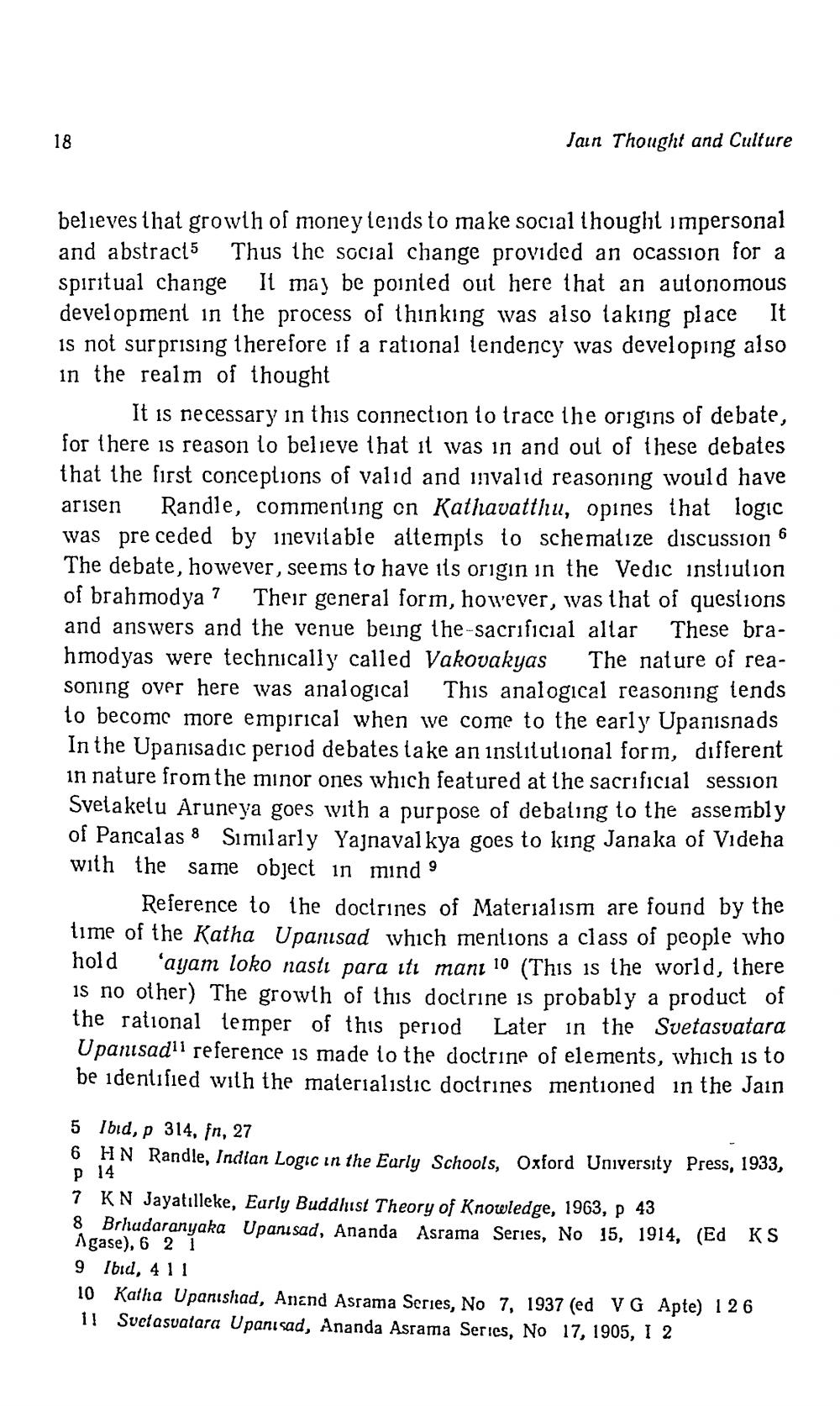________________
18
Jain Thought and Culture
believes that growth of money tends to make social thought impersonal and abstract5 Thus the social change provided an ocassion for a spiritual change It may be pointed out here that an autonomous development in the process of thinking was also taking place It is not surprising therefore if a rational tendency was developing also in the realm of thought
It is necessary in this connection to trace the origins of debate, for there is reason to believe that it was in and out of these debates that the first conceptions of valid and invalid reasoning would have arisen Randle, commenting on Kathavatthu, opines that logic was preceded by inevitable attempts to schematize discussion 6 The debate, however, seems to have its origin in the Vedic instiution of brahmodya 7 Their general form, however, was that of questions and answers and the venue being the-sacrificial altar These brahmodyas were technically called Vakovakyas The nature of reasoning over here was analogical This analogical reasoning tends to become more empirical when we come to the early Upanisnads In the Upanisadic period debates take an institutional form, different in nature from the minor ones which featured at the sacrificial session Svetaketu Aruneya goes with a purpose of debating to the assembly of Pancalas Similarly Yajnavalkya goes to king Janaka of Videha with the same object in mind 9
Reference to the doctrines of Materialism are found by the time of the Katha Upanisad which mentions a class of people who hold 'ayam loko nasti para iti mant 10 (This is the world, there is no other) The growth of this doctrine is probably a product of the rational temper of this period Later in the Svetasvatara Upanisad11 reference is made to the doctrine of elements, which is to be identified with the materialistic doctrines mentioned in the Jain
5 Ibid, p 314, fn, 27
6 HN Randle, Indian Logic in the Early Schools, Oxford University Press, 1933, p 14
7 KN Jayatilleke, Early Buddhist Theory of Knowledge, 1963, p 43
8 Brhudaranyaka Upanisad, Ananda Asrama Series, No 15, 1914, (Ed KS Agase), 6 2 1
9 Ibid, 411
10 Katha Upanishad, Anand Asrama Series, No 7, 1937 (ed VG Apte) 126 Svetasvatara Upanisad, Ananda Asrama Series, No 17, 1905, I 2
11




